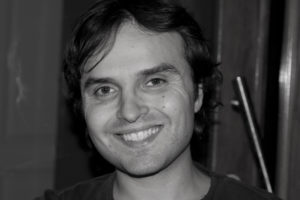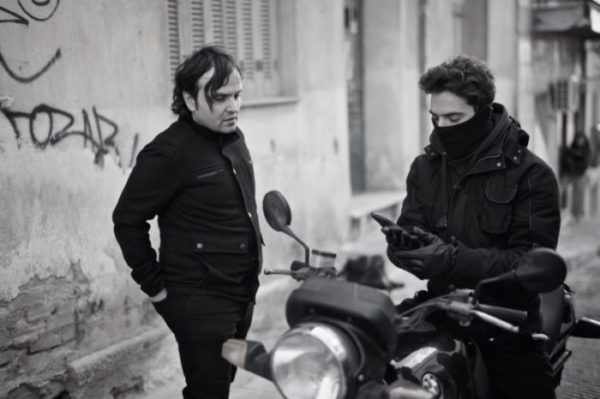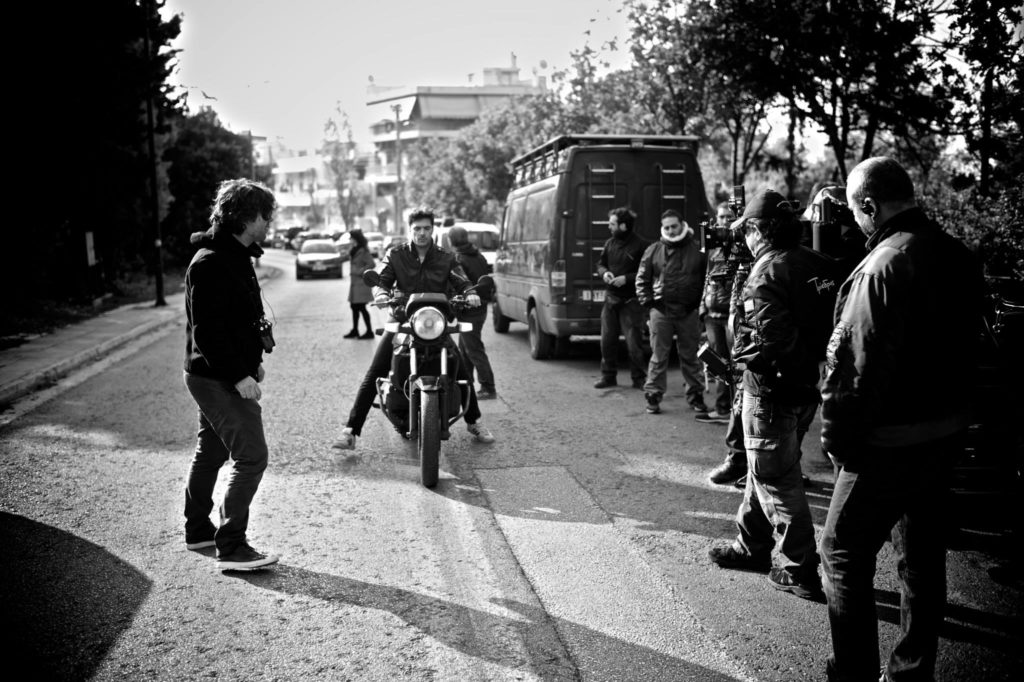2016 Arpa IFF interviews with the filmmakers
Writer-director Antonis Tsonis is experiencing the ride of a lifetime with his live-action short film 3000. So far Tsonis has earned 12 awards and the film 15. On November 6 he’ll find out if his 2016 Arpa International Film Festival (Arpa IFF) Best Short Film nomination begets another win. Even further, he’s thrilled to receive some Oscar® buzz. What a enviable year Tsonis is having!
And it is well deserved. The spec trum of love that 3000 spans is the true high and low of being in love with someone and losing someone you love. Leon’s best friend Ari shares tragic news about his battle with cancer. Unemployed and desperate to help, Leon secretly decides to become a criminal to help pay for cancer treatments. Yet Leon’s actions, to save his best friend, have irreversible consequences. Set in contemporary Athens, Greece, this film takes you on an emotional trip that delves into the depths of emptiness.
trum of love that 3000 spans is the true high and low of being in love with someone and losing someone you love. Leon’s best friend Ari shares tragic news about his battle with cancer. Unemployed and desperate to help, Leon secretly decides to become a criminal to help pay for cancer treatments. Yet Leon’s actions, to save his best friend, have irreversible consequences. Set in contemporary Athens, Greece, this film takes you on an emotional trip that delves into the depths of emptiness.
Born in Athens, Greece, Australian writer-director, Antonis Tsonis resides in Melbourne where he studied law, history, and received his Doctorate in Jurisprudence from the University of Melbourne. Antonis has been nominated and won awards for Best Director in a number of international film festivals. His short films have played in over 100 film festivals and have received many awards and nominations worldwide. Antonis’ narrative and visual inspiration comes from Italian neorealist cinema and the American new wave movement. He is especially focused on stories about characters struggling on the fringes of society.
The 19 Annual Arpa International Film Festival will screen 3000 on November 6 during the Short Film Program at 12:00pm at the Egyptian Theatre. As a part of a series of interviews with 2016 Arpa IFF category nominees, Tsonis answered the following questions.
Why did you choose to make your film?

In 3000 I want to acknowledge contemporary Athens, where the world’s focus has come to rest. Athens is now being pushed to the limit, a ground zero that begs for a re-examination of our judgments over ordinary people in their time of need. I chose to make this film, because the youth of Greece are blameless for what has been thrust upon them—both domestically and internationally by forces beyond their control. They are innocent victims of a financial and civic breakdown which they have largely been left alone to overcome.
Name a moment during shooting that made you proud.
Shooting the mid-shot of Leon sitting on his motorbike. This image not only appears in the last shot of the film, but also in our posters and in our promo materials. What I like about this shot is that it achieves a face-to-face encounter with an Athens youth.
Was there an “Aha moment” while making your film?
It is Panos Natsis’ film debut performance in 3000. Panos had to make the switch between acting in theatre and acting in film. In Athens we spent many days and nights talking about the script and the character of Leon. We watched classic performances and discussed subtleties that could not be imitated, but could be discovered uniquely by actors for themselves. The breakthrough moment for Panos, was in the middle of a rehearsal, when he was rolling a cigarette. I acted out a seizure without warning him and said, “Don’t have any inhibitions. If I can do that in front of you without any sense of reservation, you can do anything in front of me.”
Was there a bizarre moment that happened while making your film?
There wasn’t a bizarre moment, as such, but there was a serendipitous moment—which on reflection was kind of bizarre. It was when Leon and Daphne secretly met in an abandoned garden. A black cat, off in the distance, happened to stray into the shot of the two young lovers. The black cat pauses on queue and then walks off again, as if taking direction from both the director and the screenplay. This was the precise moment of Ari’s tragedy unfolding, as Ari was left alone at home when he shouldn’t have been.
What is your favorite scene?
The ending. When Leon is on his motorbike speeding away from his best friend’s family home. We see the street canyons of a monochromatic and sad beauty of a forsaken Athens. The motorbike’s petrol gauge moves to empty and we see the sun above still shining. I pay homage to the great and late Italian composer, Manuel’s De Sica, son of the great director Vittorio De Sica, whose music I had the privilege of using in this scene. We stay close to Leon on his motorbike until he runs out of petrol. This is the motif of the emptiness that the youth of Athens are feeling, and was the hardest emotion in the film that we wanted to capture.
What is your favorite line?
I think it must be when Leon says, “Yes, I will stay” to Ari’s father at the entrance of the old family home. Because of the financial crisis, the health system has folded and the family makes a decision to sell the family home to raise money for Ari’s cancer treatments. Leon is asked to stay and look after Ari so that Daphne, Ari’s younger sister, doesn’t miss any more school looking after him. But Leon says, “Yes, I will stay” knowing that he will not. Instead he too wants to raise money for Ari’s cancer treatments by approaching an underground figure for work and possibly prevent the home from having to be sold.
What does it mean to have your film selected as a category nominee by the Arpa International Film Festival?
Recognition is very important for short filmmakers, particularly before their debut feature. Having the nomination come from an independent festival based in the heart of Hollywood is humbling and a great honor. It is also an important recognition for the whole cast and crew who made 3000.
3000 (2015) | 20 min. | Live-action | Dramatic Short | Australia, Greece
Be sure to check out the trailer and get tickets—they’re going fast!
 Written by Sharon Swainson
Written by Sharon Swainson
Communications & Development Director
2016 Arpa International Film Festival

